
Organizing Paper With A Weekly Paperwork Session
The key to organizing paper in our home is to be consistent about dealing with the tasks the paper, and the information on that paper, presents to us. To do that you should use a weekly paperwork session. This article will explain both how, and why.
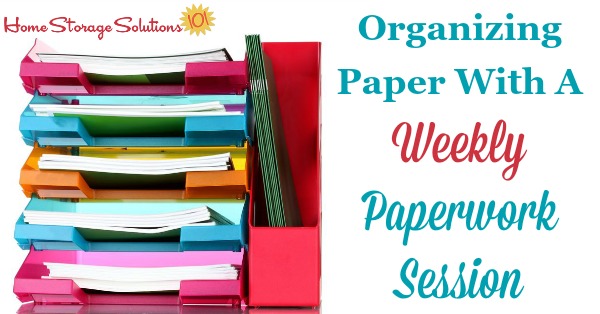
There is always a huge collective sigh of both resignation and simultaneous dread amongst participants of the Declutter 365 missions when I announce that we will be taking on the task of dealing with paper clutter. The question is why?
The resignation I think comes from knowing you've got to tame the paper monster and get control over it, because what happens when you don't have control of all the paper flooding into your home is so negative, including financially, with accumulated physical clutter in your home, and with increased stress levels from worrying that something is falling through the cracks.
The dread comes from knowing you need to deal with it, but not necessarily knowing exactly how to do that, and feeling overwhelmed by what feels like an enormous task.
When you think about it though, it really isn't that paper, itself, is scary. Heck, paper is just little thin slips. BUT it is what paper represents that ties us up in knots. Paper represents the information on that page, some of which you've got to deal with, and take action on, or might need to remember for later, or the list can go on and on.
So to fix this issue we have to deal with the incoming paper, and the tasks and details it represents, consistently so that we stay in control and don't let it pile up to overwhelming levels.
Having Both A Daily & Weekly Paperwork Routine Is Essential To Long-Term Paper Organization
We talked in another article here on the site about creating a daily routine for organizing paperwork in your home.
As explained in more detail in that daily routine article, to take control over paper and keep it from reaccumulating in the future in your home you've got to deal with the paper that comes into your home daily, and do one of four things with each piece of paper that comes in.
The four actions include: (1) trash it right away; (2) delegate it to someone else; (3) file it for future reference (meaning no action is currently needed with this paper); or (4) keep it to take some type of action on.
Examples of papers that come into your home that require you to take action include bills to pay, tax assessments to call about, party invitations to respond to, field trip permission slips to sign, and much more.
These papers that require action are the types of papers people are afraid are falling through the cracks when their system for dealing with papers is disorganized or non-existent. In addition, these types of papers are what make them worry when they see their huge paper piles on a flat surface. They don't know quite what is in the pile, but there could be something actionable in there you're forgetting, right?
In addition, many of these actions you need to take are time sensitive. You don't necessarily need to deal with it right away when the paper comes in, but you can't wait until a year later to deal with a lot of this stuff either. That's becaue bills become past due, deadlines pass, other people act first and take up all the spots, etc.
Plus, if you do let these actionable papers pile up it means your to do list, represented by the information contained in all those papers, keeps getting larger. The larger the to do list the more it becomes overwhelming, and stressful.
Once you have that daily routine in place you'll have taken a huge step toward taking back control of your paper, because daily you're separating out these actionable papers from everything else.
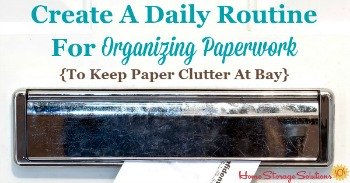
However, you'll still need to do the next step, the weekly paperwork session, to actually take the actions required by the papers.
When you combine the daily and weekly routines together the total system for paper organization will be complete.
What To Do In The Weekly Paperwork Session
The weekly paperwork session is not complicated, and I don't want you to make it complicated, or you're less likely to do it.
First, choose a day. I personally choose Monday, since it is the beginning of the work week and it works for me. But there is no one day that is perfect for everyone. So choose your day. Choose a weekday, or choose a weekend. Doesn't matter as long as you do it consistently.
Once you've decided on the day, all you do is grab the stack of paperwork that has accumulated over the course of the week on the day you've chosen, and now you sit down and tackle it, one piece of paper at a time.
I do like to batch tasks though, so I'll tell you that I add some things to my weekly paperwork session that make sense, and are related enough to the tasks I'm already doing that relate to the paperwork I've accumulated over the course of the week, that it is easy to group everything together.
A good example, and the reason I have discussed the weekly paperwork session concept during the week of the 52 Week Organized Home Challenge where we organize bills, is because you should use your paperwork session to not only pay bills, but to do other financial and paperwork type tasks as well.
You should consider doing the following tasks during your weekly paperwork session:
- Pay bills
- Make phone calls that are necessary about bills, or other information that comes in during the week
- Reconcile your bank account, confirming what checks cleared during the past week and that all deposits are credited to the account, etc.
- Make any necessary money transfers between bank accounts
- Confirm everything appears to be working normally as it relates to automatic withdrawals and automatic bill pay for your accounts
- Deal with the action and follow up folders in your email account (read my article to find out more about organizing email using folders, including the action and follow up folders)
- Declutter, organize and file that week's receipts you've collected in your receipt envelope (see the create a receipt organizer mission for more information on that task, plus you could also use this time to declutter your purse regularly as well, while you're removing the receipts)
- File paid bills and other filing that has accumulated during the week in your designated filing (see the Organize Files Challenge for more details)
- Shred any documents that have accumulated in your designated shredding area
- Deal with school papers for your kids, such as paying for field trips, filling out permission slips, etc. (You need to be doing some daily tasks with school papers as well)
- Adding dates to your calendar, both from papers or emails you've received
- Organizing physical photographs and digital photos, as part of a regular routine
- Meal planning and making grocery shopping list; and
- Tasks related to organizing coupons
You'll notice that in the tasks I've suggested for this "paperwork" session there are also quite a few digital tasks, like dealing with automatic bill pay or processing information that came to you via email. That's because now a lot of what traditionally had been tasks classified as paperwork have become digital, but although the paper itself has been eliminated, the tasks surrounding it still remain.
I know this list of tasks seems like it would take a long time, but the beauty of the weekly paperwork session is that these tasks, when done regularly, each week, don't take long at all. It doesn't take as long to deal with a week's worth of receipts as it does to deal with a few months worth, and the same goes for the other tasks on the list as well.
Plus, an additional beauty of the weekly system is when you catch mistakes or problems early, such as with billing problems or are proactive in calling about issues, it is often easier to resolve and fix mistakes than if you wait and don't discover there's an issue for months at a time.
The Weekly Paperwork Session Is A Cornerstone Of The 52 Week Organized Home Challenge
Finally, from all the links to other challenge articles I've placed above it isn't hard to see that this weekly paperwork session brings together quite a few of the pieces of the puzzle when it comes to organizing your life. In each week of the 52 Week Organized Home Challenge we focus on a different room, type of item, or a different habit necessary to become organized and then stay that way from now on. A lot of the habits I suggest you adopt during these Challenges are actually weekly habits, including meal planning, paying bills, organizing receipts, cleaning out your purse, etc.
But it can be hard to remember to do all those different things weekly. The beauty of this weekly session is that it's your chance to bundle many of these weekly tasks together, into one activity, so it's easier to make sure you remember to do everything you should be doing not just for organized paperwork, but for an organized life.
That's why I say that this weekly paperwork session is so important. It's a cornerstone of the whole organizational system I espouse as part of the Challenge! It's that fundamental to maintaining an organized life from now on.
Further, I've also included it in my list of essential household chores to do even when you're in survival mode, meaning things in your life are extremely busy, hectic or crazy.

So what are you waiting for? Go ahead and adopt a weekly paperwork session for yourself starting this week and you'll quickly see a positive difference in your home and life, both with paper organization and in general.
What's Next In The Paper Organization Series?
This article continues the section of the Paper Organization Series that is focused on building our systems and routines to keep paper from accumulating so much again in the future in our homes and feeling so overwhelming.
Now that you understand the purpose of both the daily and weekly paperwork routines, the rest of the series focuses on how to organize specific types of paper, such as files, receipts, tax documents and more. To see a full list of those topics go to the main introductory article of this series (linked above) and find the topic you're interested in.
Want To Do More Decluttering Missions? Get Started With Declutter 365 Today!
Once you declutter one type of item in your home I bet you'll want to declutter some more. After all, decluttering gives you a great reward for even a small investment of time and energy.
The Declutter 365 system is designed to help you declutter, over the course of a year, your entire house, with just 15 minutes of decluttering each day!
Hundreds of thousands of people use this proven system to get rid of their clutter, and bring peace and calm back to their homes.
Declutter 365 works to guide you to clear the clutter without overwhelm, focusing on just one small area at a time, and without making a huge mess in the process, so you see consistent forward progress without all that "messy middle" that makes it even harder to function in your home than before you started.
In addition to building a daily decluttering habit, the Declutter 365 program, along with the accompanying 52 Week Organized Home Challenge, teaches you the skills, habits, routines, and mindsets necessary to maintain the clutter free and organized state of your home from now on, so it'll never be as messy and cluttered as it is right now, ever again.
If you haven't already, make sure to get your copy of this year's Declutter 365 annual calendar here (it's FREE!), find today's date, and do 15 minutes of decluttering on the day's mission. Then, repeat again tomorrow, and again and again. Over the course of the next year, if you do this 15 minutes per day, you'll declutter your whole house!

Get This Paper & Filing Decluttering Checklist + 32 Other Decluttering Checklists For Your Home
Right now you're decluttering your papers and files, and there's a lot of types and varieties of these around your home.
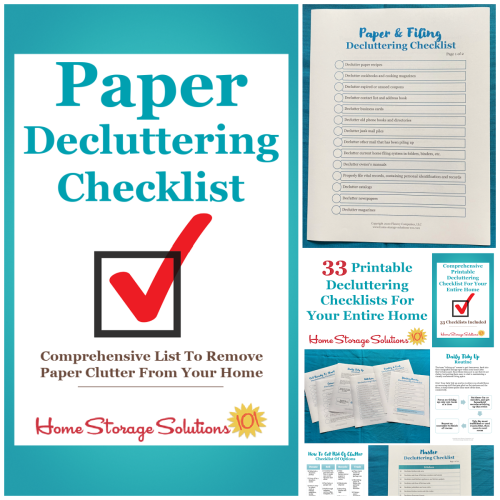
I've done the hard work of breaking down these tasks into smaller more manageable steps for you, so you don't get overwhelmed or worry you're forgetting a task, and you can go at the pace you want, whether that's fast or slow.
In addition, you can tackle these decluttering tasks in whatever order you want when you use these checklists!

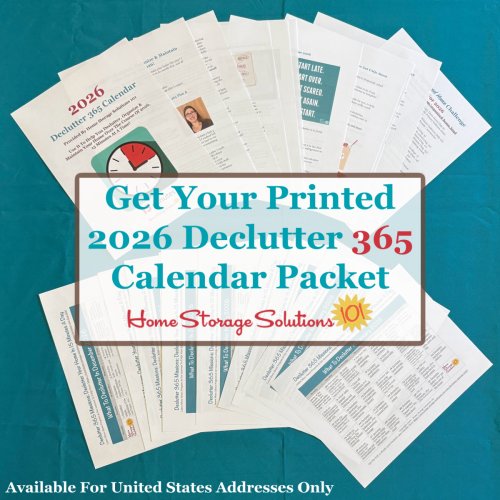
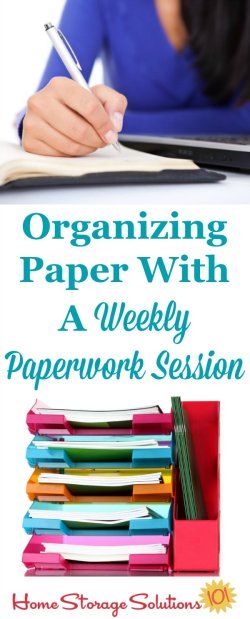

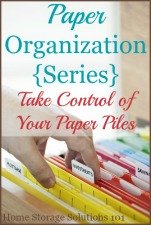
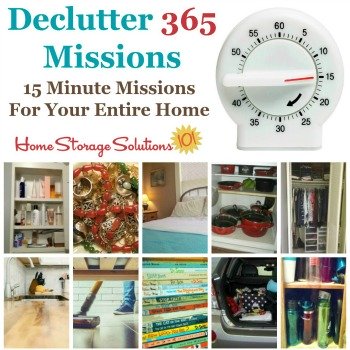
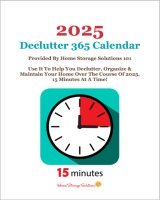
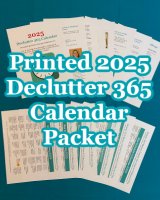
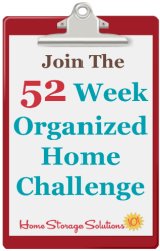



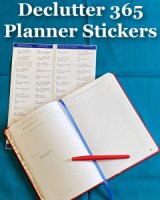

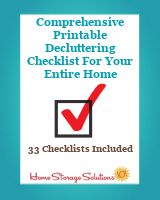




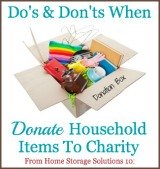
Share Your Comments, Tips & Ideas
I would love to hear from you, sharing your thoughts, questions, or ideas about this topic, so leave me a comment below. I try to always respond back!